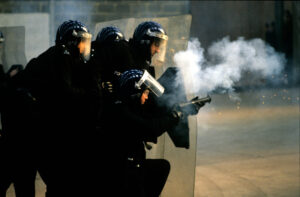Met only authorised baton rounds for black-led events
Published on 07 August 2023
Brian Harris / Alamy Stock Photo

The Metropolitan police approved their use at Notting Hill carnival and the Black Lives Matter protests in 2020
Reports Mark Wilding for Liberty Investigates and Vikram Dodd for the Guardian

